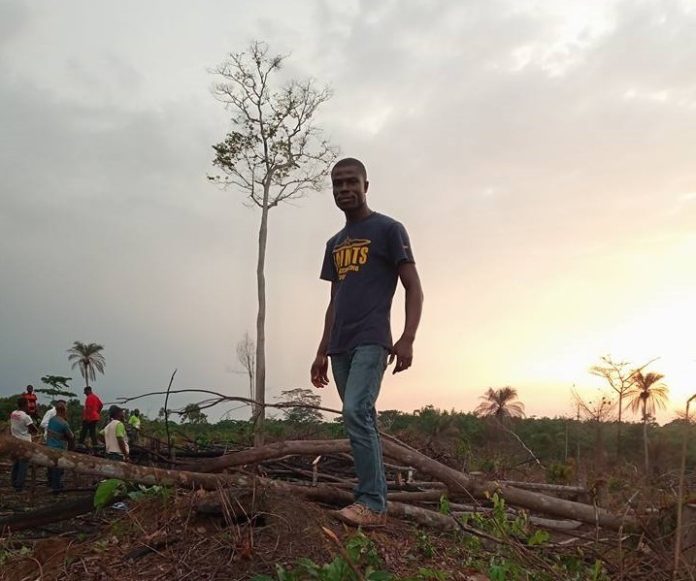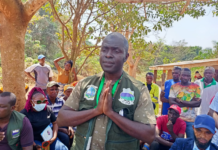By Calvin Quays|Contributor
A new technology meant to track illegal activates in the mining, forestry and other sectors has been introduced to enhance the monitoring and reporting efforts of community dwellers.
It will also enhance local civil society organizations as well as the media to draw national government’s attention to multiple breaches law in Liberia.
The technology known as Forest-Link, Real Time Monitoring (RTM), was introduced by VOSIEDA under the European Union (EU) Non State Actors (NSA) project, and is being implemented by the Independent Civil Society Forest Monitor (CS-IFM) with technical support from the EU-NSA project.
Forest-Link-RTM, owned and operated by the Rainforest Foundation UK (RFUK), is a set of software, hardware and methodologies used to collect and transmit geo-reference alerts about illegal logging and mining.
According to the National Coordinator of the Liberia Forest Media Watch (LFMW) Moses R. Quollin, a consortium of investigative journalists reporting on forestry issues, connects local people with national law enforcement in an effort to stop illegal logging and deforestation.
Coordinator Quollin stated that the overall aim of the initiative is to promote sustainable, equitable and transparent use of forests through enhancing the role of local communities in forest governance in Liberia.
The LFMW Coordinator made the disclosure Monday on July 13, 2020 following the end of a 3-day introductory training for the Forest-Link RTM system which includes a web designed called “Monitor” and a mobile app called “Collector” held in Monrovia.
According to him, forest communities can send alerts and evidence of a number of threats to the forest, even in remote areas with no mobile connectivity noting that it uses a satellite, internet and mobile SMS-Short Message Service on smart phones.
How the tool does works?
He said it is a simple 5-step procedure but very important for our reportage as investigative journalists following these issues and reporting for our various media houses.
He pointed out that the procedures with 1 information is collected using a tablet computer or smartphone; 2. Transmit – Using a bespoke app, information is coed and then transmitted to an online repository via a satellite modern transmitter but in Liberia we are trained to use the mobile phone SMS or internet;
3. Store – The information is stored in a central geographical database where it can be accessed and analyzed by experts and/or automatically re-broadcast for in-field verification of the reports.
The incident reports can be searched for numerous variables, such as the name of company involved, type of infraction etc.;
- Verify – The verification stage allows for collection of additional information about given incident reported; for instance, on the approximate date when it took place, whether it is isolated or a regular occurrence, its author, possible causes and observed impacts and for documenting it visually.
The verifier could also assess how the information should be acted on by enforcement agencies – the government;
5. Act – Once verified, information would be sent on to responsible enforcement or other agencies”.
Liberia Forest Media Watch – LFMW is also an outcome of the European Union Non State Actor (EU-NSA) project: “Strengthening the capacity of non-state actors (NSA) to improve FLEGT-VPA and REDD+ processes in Western Africa” It also coordinates the “Forest Hour,” a local radio advocacy & communication program held every week on OK FM 99.5.
The radio show is intended to raise communities’ voice at national level, ignites nation-wide participation, dialogue on forest laws, policies, agreements and practices within the context of Forest Law Enforcement, Governance and Trade (FLEGT).
It also draws attention to Reducing Emissions from Deforestation and Forest Degradation (REDD+) and other conditions agreed to in the Volunteer Partnership Agreement (VPA) that was signed between the European Union and the Liberian Government to discourage illegal logging and promote transparency and accountability.
























Comments are closed.